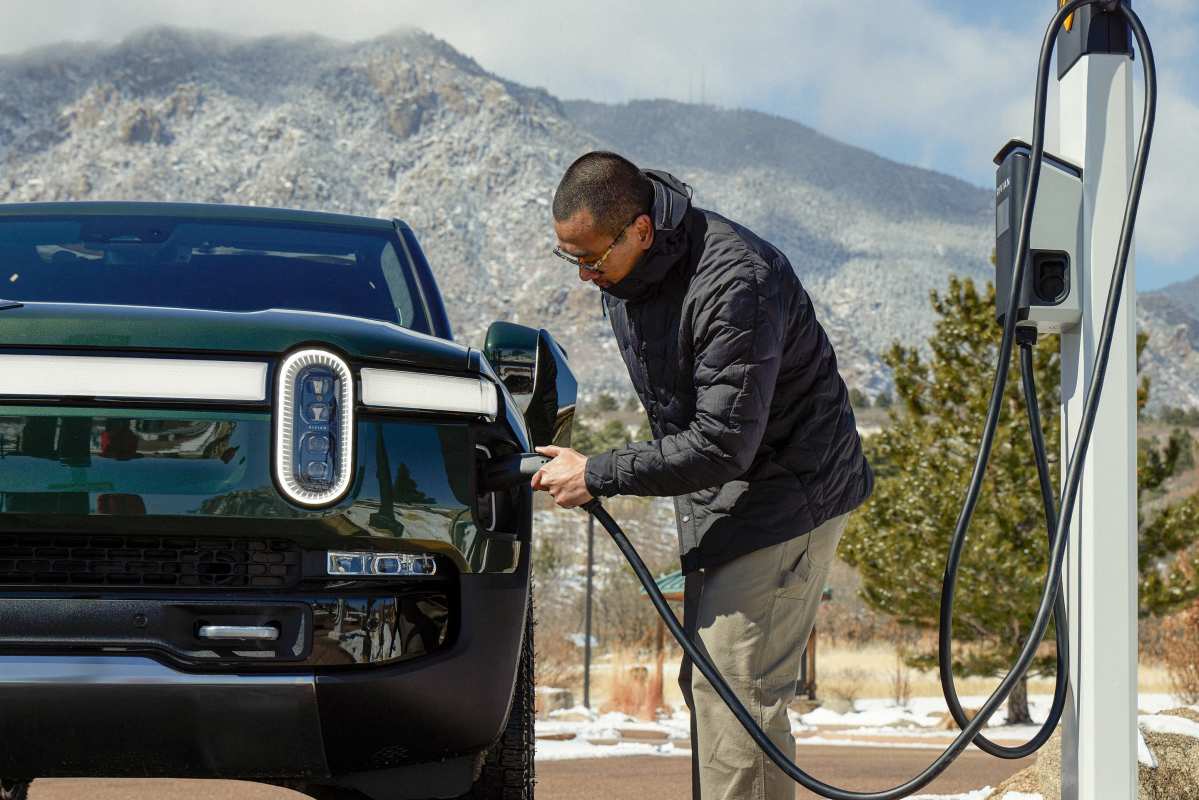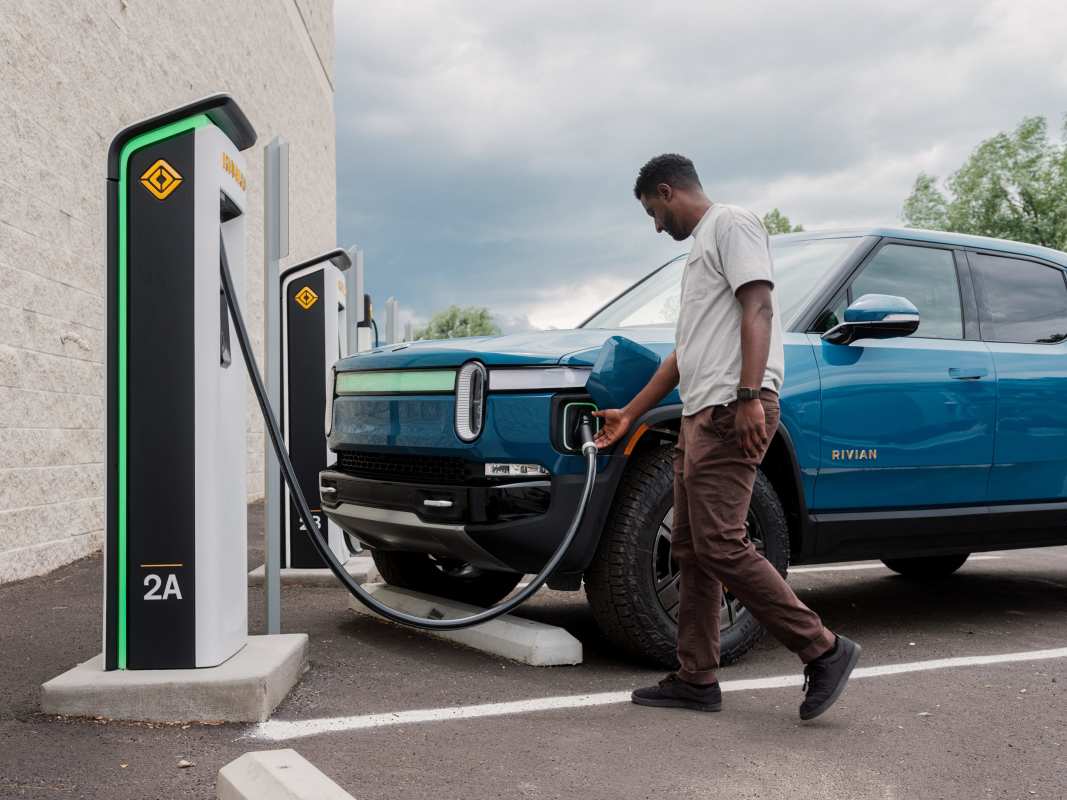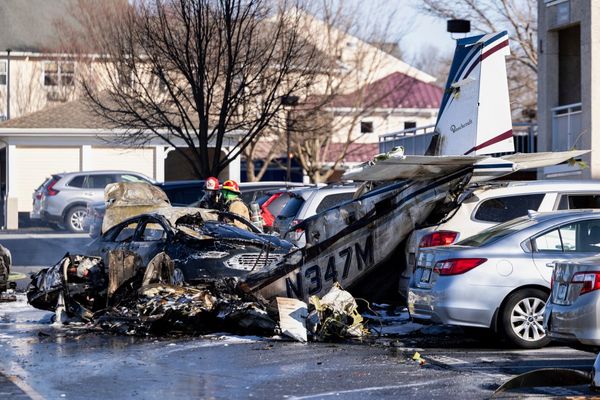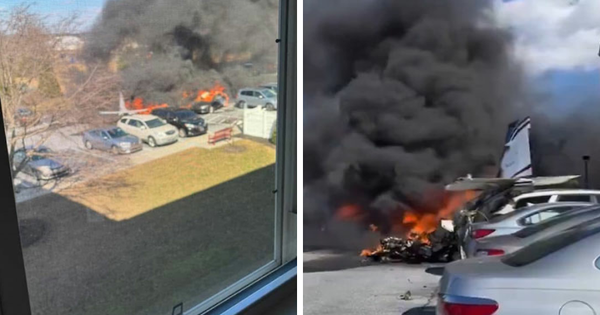
As pointed out by studies, statistics, and even off-the-cuff remarks by beloved auto authority and television host James May, the most difficult part of owning an electric vehicle is charging.
Unlike gas powered cars, which can be filled up at virtually any gas station on any corner in the globe, EVs need to be charged up in a manner that can be rendered inconvenient for most drivers. Though Tesla's (TSLA) reliable and fast Supercharger network can be accessed by owners of other brands such as Ford (F) , and Hyundai (HYMLF) , the reality for most drivers involves finding a public EV charging station with broken and/or out of service chargers.
In its latest software update for its electric pickup trucks and SUVs, Tesla competitor Rivian (RIVN) is using a data-driven solution to ease the charging headaches.
Related: Tesla's latest update brings good news for vehicle owners

Rivian
As per a recent report by The Verge, Rivian is using data gathered from customer cars to help its owners find suitable charging stations in the same way that picky eaters find "clean" restaurants in an unfamiliar city.
Basically, every time a Rivian customer plugs into a charging station, the car captures data points that paint a picture about the charging experience, such as the charging speed, how easy it was to pay, the thermal behavior, and most importantly, if the charger actually charges the car.
The data it captures is then sent over to Rivian via a cloud server. The data is then analyzed and allows Rivian to give chargers a letter grade score from A to F based on the metrics it captured. Each and every time a Rivian driver uses a specific charging station, its letter grade can change based on the user's experience.
More Business of EVs:
- A full list of EVs and hybrids that qualify for federal tax credits
- Here’s why EV experts are flaming Joe Biden’s car policy
- The EV industry is facing an unusual new problem
Rivian’s head of software Wassym Bensaid tested this "charging-station-Yelp" software out in public, and noted how effective it was in finding duds in the charging infastructure.
“Surprisingly, actually, there’s multiple chargers rated F,” Bensaid told The Verge. “That was one of the ‘a ha’ moments as we went through the data.”
To make this new software actually effective at launch, Rivian says that it had already been capturing said customer charging data points for more than a year. Additionally, the company says that it is also adding a customer feedback prompt to the service that lets Rivian owners report bad chargers and highlight ones that work the best.
“Charging should just work,” Bensaid said. “And the more we get happy customers, the more we remove charging anxiety as a barrier for adoption.”
Currently, Rivian owners have access to Tesla's Supercharger network, and the company plans to launch hundreds of its own chargers very soon.
Related: Veteran fund manager picks favorite stocks for 2024







